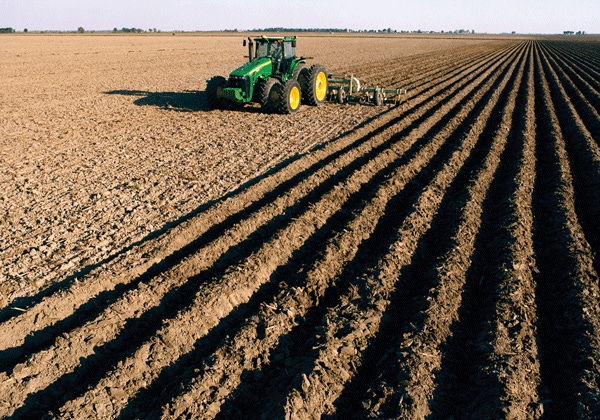
• In addition to warmer days, climate change is causing animals, birds and fish to move northward, plants to bloom earlier, snowmelt to occur earlier, increasing heavy downpours, rising sea levels, rapidly retreating glaciers, and lengthening growing seasons.• Growers can help by using renewable energy whenever possible, conserving energy, and being precise in their use of fertilizers.
December 7, 2010

Climate change is one of the most important issues facing humanity, said Don Wuebbles, University of Illinois scientist in the Department of Atmospheric Sciences, to more than 150 attendees of the 2010 U of I AGMasters Conference at the I Hotel in Champaign.
“The science is clear,” Wuebbles said. “Our climate is changing, and human activities have been identified as the primary cause. The need for urgent action is indisputable.”
Scientific analyses strongly indicate globally averaged temperature changes are being driven by changing atmospheric concentration of radiatively important gases and particles, lending credence to concerns about much larger changes in climate being predicted for the coming decades, he said.
However, Wuebbles said climate change is bigger than increasing temperatures. Future temperatures are projected to increase at an unprecedented rate, up to 11 degrees higher in the next century.
In addition to warmer days, climate change is causing animals, birds and fish to move northward, plants to bloom earlier, snowmelt to occur earlier, increasing heavy downpours, rising sea levels, rapidly retreating glaciers, and lengthening growing seasons.
Warmer winters, warmer summers, wetter winters and springs, and drier summers will pose challenges for Illinois agriculture that could experience summer weather similar to east Texas by the end of this century.
He expects extreme weather events to become more common. Heat waves will become longer, droughts will become more frequent, severe thunderstorms will increase, and winter snow storms will become stronger.
“Our future climate and its impacts depend on choices that are made today,” Wuebbles said. “Farmers can help by using renewable energy whenever possible, conserving energy, and being precise in their use of fertilizers.”
Wuebbles shares in the 2007 Nobel Peace Prize for his previous work with the international Intergovernmental Panel on Climate Change. He was a member of a federal advisory committee that assessed and published a report in 2009 on the potential impacts of climate change on the United States.
You May Also Like



